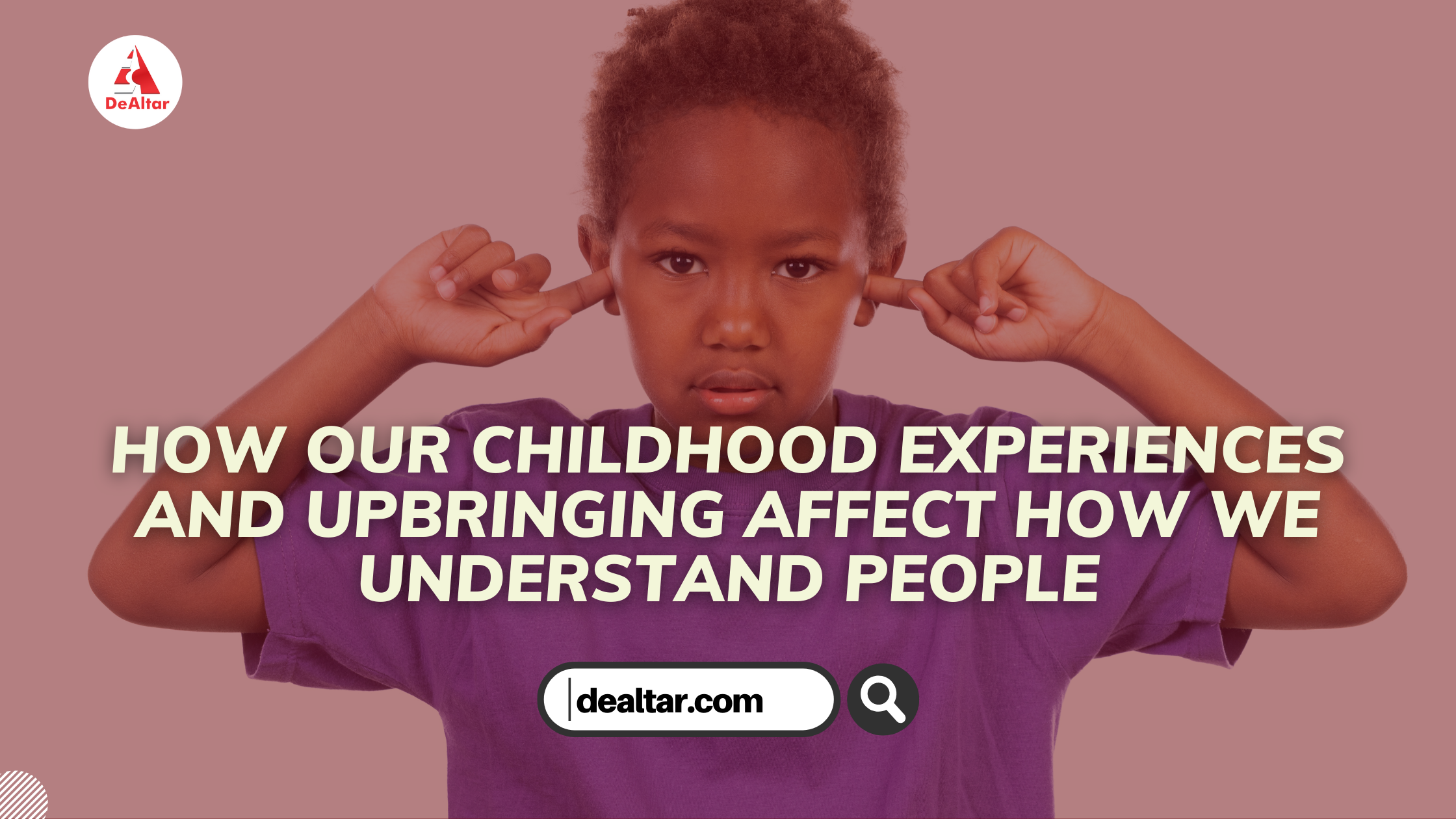How Our Childhood Experiences And Upbringing Affect How We Understand People
Understanding people is very important, as long as keeping good and purposeful relationships is concerned. As children, we were oblivious to this fact but growing up, we learnt it both the good way and most times the hard way through our childhood experiences.
Generally, we are all taught to understand people, but through an informal educational system. This involves training we have received as children from parents, relatives, family friends, neighbours, etc. We will be an ungrateful or ignorant generation if we conclude that our childhood experiences and upbringing have not played any role in teaching us to understand people. That, I am here to make sure we don’t do.
It is important to note, that our childhood experiences taught us to understand some age grades. Mostly older adults and grannies. We learnt from experience how to behave, speak and play when around these people. So as not to be referred to as those who ‘lack respect and home training’.
Depending on the tribe, we also want to pay close attention to how we greet. If you don’t greet (probably forgot), you are scolded as one who doesn’t have respect for elders. And if you don’t greet properly, they conclude that you lack home training or that such a child is an intransigent one. As children, we have learnt this fact from the experiences we had with them on different occasions and scenarios. These still influence how we understand this set of people.
As children, we were limited to the understanding, knowledge and level of exposure of our older ones when it has to do with understanding people. How we relate to and regard people, either from a positive or negative perspective, depends entirely on the level of understanding, knowledge and exposure our older ones have then. This explains why some of us grow up with some stereotype believes about some group of people, which have affected the way we relate with them and have prevented us from understanding them properly.
If during our childhood days, we were exposed to those who took their time to study and understand people before making conclusions about them, it would reflect in our lifestyle, as we won’t be biased when dealing with different kinds of people. Instead, we would take our time to respect and honour different kinds of people and their uniqueness.
It is obvious that childhood experiences and upbringing play both positive and negative roles in understanding people. So it is left to individuals to cross-examine themselves, and identify those wrong ideas we have acquired in our upbringing about people. We should take our time to study stereotypical beliefs and prejudices outside of our belief systems. As adults, we need to start seeing people from different perspectives and with an open mind. This way we won’t be prevented by anything from understanding people properly.

This Post Has 0 Comments